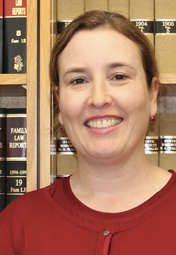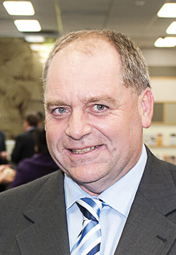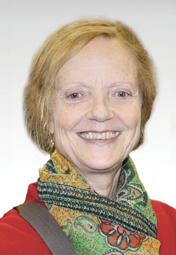Corporate governance
This section reports on aspects of the Federal Circuit Court of Australia’s (Federal Circuit Court) corporate governance arrangements.
The legal framework for the Federal Circuit Court’s corporate governance practices is set out in the Federal Circuit Court of Australia Act 1999, the Public Governance, Performance and Accountability Act 2013 and the Public Service Act 1999.
Under the Federal Circuit Court of Australia Act 1999, the Chief Judge is responsible for ensuring the orderly and expeditious discharge of the business of the Federal Circuit Court and management of the administrative affairs of the Court. In the latter role, the Chief Judge is assisted by the Chief Executive Officer (CEO) and Principal Registrar.
On 1 July 2016, the Federal Court, Family Court and Federal Circuit Court became a single administrative entity for the purposes of the Public Governance, Performance and Accountability Act 2013 and the Public Service Act 1999. The budget and staff of the Court sit within that entity, with the CEO and Principal Registrar of the Federal Court the relevant accountable officer under those acts.
Responsibilities for the Court’s budget and staff have been delegated to the CEO and Principal Registrar of the Federal Circuit Court, pursuant to a memorandum of understanding with the Federal Court CEO and Principal Registrar. The Federal Circuit Court retains its distinct statutory identity.
Senior executives

CEO and Principal Registrar
Virginia Wilson (acting)
The CEO and Principal Registrar maintains autonomy in the core function of assisting the Chief Judge in the administration of the Federal Circuit Court through the exercise of delegated authorities under the Public Governance, Performance and Accountability Act 2013 and the Public Service Act 1999. The CEO and Principal Registrar has oversight of the support provided to the judges of the Federal Circuit Court across its jurisdictions, as well as delivery of family law client services nationally, and ensures that the business needs of the Court are met. Ms Virginia Wilson was appointed acting CEO and Principal Registrar on 1 April 2019.

Executive Director, Performance Planning and Strategy
Steve Agnew
The Executive Director, Performance, Planning and Strategy is responsible for ensuring that the Heads of Jurisdiction of the Federal Circuit Court and the Family Court, their CEO(s) and other senior executives are able to make strategic decisions on court performance, through the provision of reliable data and insightful analysis to drive performance, planning processes and operational efficiency.

Executive Director, Child Dispute Services
Janet Carmichael
Reporting to the CEO and Principal Registrar of the Federal Circuit Court, the Executive Director, Child Dispute Services has national responsibility for the professional requirements of child dispute services in the Family Court and the Federal Circuit Court. The Executive Director provides strategic advice to the Chief Justice, the Chief Judge, and CEO and Principal Registrar in relation to the effective and efficient operation of child dispute services, with particular attention to the achievement of best practice standards in policy, practices and service delivery. The Executive Director works closely with external child and family dispute resolution bodies, as well as relevant tertiary institutions, which are important to the development and ongoing maintenance of high-quality child dispute services, quality assurance and accreditation processes.

Deputy Principal Registrar
Adele Byrne PSM
The Court’s Deputy Principal Registrar supports the judicial functioning of the Court through the provision of high-level legal and procedural advice within the Court.
Judicial committees
The Court’s corporate governance framework includes a range of committees and cross-entity mechanisms to support the effective management of the Court. This is in accordance with s 93 of the Federal Circuit Court of Australia Act 1999, which provides for the Court to form advisory committees on the following aspects of the Court’s business:
- the exercise of powers under the Federal Circuit Court of Australia Act 1999
- the making of the Rules of Court, and
- management of the administrative affairs of the Court.
Overarching committees
National Practice Area Committee
The National Practice Area Committee provides advice to the Chief Judge in relation to the current and proposed case management structures, judicial conduct and judicial education, and the interaction between the Federal Circuit Court and other courts. Each area of the Court is represented according to a national practice area.
The committee met four times in 2018–19.
Members of the committee at 30 June 2019 included:
- Chief Judge Alstergren (Chair)
- Judge Driver
- Judge Riethmuller
- Judge Altobelli
- Judge Spelleken
- Judge McGuire
- Judge Cole OAM
- Judge Willis AM
- Judge Harland
- Judge Vasta
- Judge McNab
- Judge Kendall
- Virginia Wilson, Acting CEO and Principal Registrar
- Steve Agnew, and
- Catherine Bull (Secretariat).
Case Management Judges Committee
The Federal Circuit Court has a structure consisting of a National Coordinator of Case Management and case management judges who represent discrete geographical areas/locations. Through this structure, the Court actively monitors its case management across the nation and considers opportunities for improvement.
The role of case management judges also aids the communication throughout the Court on all aspects of workload, timeliness and court practice. Case management judges are also local points of contact for regional stakeholders. The committee meets quarterly with the Chief Judge and the National Coordinator of Case Management to share information about workload trends and issues in their regions and to enhance the adoption of consistent case management practices at registry, regional and national levels.
Members of the committee at 30 June 2019 included:
- Judge Lapthorn
- Judge Hughes
- Judge O’Sullivan
- Judge C Kelly
- Judge Terry
- Judge Dunkley
- Judge Vasta (National Coordinator of Case Management)
- Judge Street
- Judge Boyle
- Steve Agnew, and
- Amanda Morris.
Legal Committee
The Legal Committee considers possible rule amendments and wider legal issues about the jurisdiction of the Court. The committee refers its recommendations to the Chief Judge for the consideration of the Court as a whole. Legislation requires that the Rules of Court be approved by all or a majority of judges. Meeting monthly, the committee considers:
- legislative developments to consider any workload or jurisprudential impacts
- recommended rules, practice notices and approved forms, and
- legal issues impacting on the jurisdiction of the Court.
The committee also liaises with the Family Court and the Federal Court in relation to rules, forms and fees, where appropriate, and with other committees as required to achieve their respective objectives and provide coordinated advice to the Chief Judge and the CEO and Principal Registrar.
Members of the committee at 30 June 2019 included:
- Judge Driver (Chair)
- Judge Jarrett
- Judge Hughes
- Judge Riley
- Judge Harland
- Judge Kendall
- Judge Baird
- Virginia Wilson
- Tony Tesoriero, and
- Amanda Morris.
Working groups and committees
Finance Committee
The role of the Finance Committee is to consider the Court’s budget position and financial affairs generally, and to make recommendations to the Chief Judge where appropriate on policies and procedures in light of expenditure. The committee also assists the CEO and Principal Registrar in the discharge of his or her obligations arising from the delegation of responsibility for the Federal Circuit Court budget, as part of the broader entity.
The committee meets at least once in each financial year.
Members of the committee at 30 June 2019 included:
- Judge Driver (Chair)
- Judge Cole OAM
- Judge A Kelly
- Judge Costigan
- Judge Boymal
- Virginia Wilson
- Catherine Sullivan
- Steve Agnew, and
- Kathryn Hunter.
Aboriginal and Torres Strait Islander Access to Justice Committee
The Aboriginal and Torres Strait Islander Access to Justice Committee continues to coordinate the implementation of the Court’s Reconciliation Action Plan and the Court’s engagement with Aboriginal and Torres Strait Islander communities around Australia. This work has been undertaken with the help of Indigenous community members working with judges and staff.
Members of the committee at 30 June 2019 included:
- Judge Willis AM (Chair)
- Judge Coates
- Judge C Kelly
- Judge Terry
- Judge Kemp
- Judge Myers AM
- Judge Small AM
- Judge Stewart
- Judge Young
- Judge Boyle
- Dennis Remedio
- Trent Shepherd, and
- Rick Welsh.
A number of events and activities occurred throughout the year to promote the Court’s Reconciliation Action Plan aspirations.
Family Violence Committee
The Family Violence Committee is a joint committee of the Family Court and the Federal Circuit Court. The committee’s principal responsibility is to provide advice to the Chief Justice, the Chief Judge and the CEO and Principal Registrar of both courts on the issue of family violence.
In discharging this responsibility, the committee reviews and updates the courts’ Family Violence Plan and Family Violence Best Practice Principles, as well as undertaking discrete projects.
This year the committee released their joint Family Violence Plan (the Plan). The Plan refines and updates the Family Violence Plan 2014–16 and builds on the important work undertaken by the courts under the 2014–16 Plan.
The Plan demonstrates the courts’ ongoing commitment to addressing issues of family violence by providing a comprehensive set of actions that will support people who are experiencing, or at risk of, family violence.
Members of the committee at 30 June 2019 included:
- Judge Hughes (Chair)
- Justice Ryan
- Justice Hannam
- Judge Brown
- Judge Spelleken
- Judge Terry
- Judge Bender
- Janet Carmichael
- Lisa O’Neill
- Di Lojszczyk, and
- Melissa Buhagiar (Secretariat).
Judicial Wellbeing Committee
The Judicial Wellbeing Committee was established to promote and protect the health and wellbeing of judges.
Members of the committee at 30 June 2019 included:
- Chief Judge Alstergren (ex officio)
- Judge Driver
- Judge Altobelli (Chair)
- Judge Willis AM
- Judge Stewart
- Judge Vasta
- Judge Heffernan, and
- Jordan Di Carlo.
During 2018–19, new regional wellbeing coordinators were appointed to ensure ongoing and regular focus on this issue in all areas of the Court (the list of coordinators is at Appendix 3).
Judicial Education Committee
The Judicial Education Committee provides advice and recommendations to the Chief Judge on judicial education and professional development, and on coordinating and promoting professional development activities. The committee met three times during 2018–19.
Members of the committee at 30 June 2019 included:
- Judge Harland (Chair)
- Judge Altobelli
- Judge Cole OAM
- Judge Vasta
- Judge Manousaridis
- Judge Stewart, and
- Judge Kendall.
Joint Rules Harmonisation Working Group
The Rules Harmonisation Working Group is a joint committee of the Family Court and the Federal Circuit Court, comprising judges of both courts, responsible for developing a common set of rules, forms and case management in the courts.
The working group is chaired by the Honourable Dr Chris Jessup QC. Dr Jessup is also assisted by two barristers, Ms Emma Poole and Mr Christopher Lum. Members of the group are working closely with the judges to draft the common rules and forms and aid the development of a consistent approach to case management.
Members of the working group at 30 June 2019 included:
- Dr Chris Jessup QC (Chair)
- Chief Judge Alstergren
- Deputy Chief Justice McClelland (Family Court)
- Justice Ryan (Family Court)
- Justice Watts (Family Court)
- Justice Rees (Family Court)
- Justice Williams (Family Court)
- Justice Hartnett (Family Court)
- Judge Driver (Federal Circuit Court)
- Judge Hughes (Federal Circuit Court)
- Judge Harland (Federal Circuit Court)
- Virginia Wilson, and
- Jordan Di Carlo.
Cultural and Linguistic Diversity Committee
The Cultural and Linguistic Diversity Committee is tasked with identifying barriers to access to justice in the Federal Circuit Court for people from non-English speaking backgrounds, identifying the relevant issues and developing and implementing strategies to overcome such barriers.
The focus of the committee during the financial year was to identify issues that could be the subject of action in the short and medium term.
Members of the committee at 30 June 2019 included:
- Judge Harman
- Judge Small AM
- Judge Vasta, and
- Judge Obradovic.
Children’s Committee
The Children’s Committee is a joint initiative between the Federal Circuit Court and the Family Court, and meets regularly to explore the work to be undertaken with respect to the involvement of children in parenting proceedings and improving the experiences of children in the family law system.
The committee has established and is building links with the Australian Children’s Contact Services Association.
Members of the committee at 30 June 2019 included:
- Justice Benjamin AM (Family Court)
- Justice Moncrieff (Family Court of Western Australia)
- Judge Cole OAM (Federal Circuit Court)
- Janet Carmichael (Federal Circuit Court)
- Kylie Beckhouse (Legal Aid New South Wales)
- Alexandra Wearne (Independent Children’s Lawyer, New South Wales)
- Kate Bint (Independent Children’s Lawyer, Queensland), and
- Brigid Jenkins (Victoria Legal Aid).
Collaborative committees
Joint Costs Advisory Committee
The Joint Costs Advisory Committee comprises representatives of the four federal courts: the High Court of Australia, the Federal Court, the Family Court and the Federal Circuit Court.
Members of the committee at 30 June 2019 included:
- Justice Benjamin AM, Family Court (Chair)
- Philippa Lynch, CEO and Principal Registrar, High Court of Australia
- John Mathieson, Deputy Principal Registrar, Federal Court, and
- Virginia Wilson, acting CEO and Principal Registrar, Family Court.
Scales of costs
The current cost scales for each of the federal courts are provided for in the following legislation:
- High Court Rules 2004 Schedule 2
- Federal Court Rules 2011 Schedule 3
- Family Law Rules 2004 Schedule 3, and
- Federal Circuit Court Rules 2001 Schedule 1.
Federal Court Security Committee
The Security Committee considers issues of security across the Federal Courts, with cross-jurisdictional representation, supporting the overarching security issues across the entity.
The committee comprises representatives of the three federal courts: the Federal Court, the Family Court and the Federal Circuit Court.
Members of the committee at 30 June 2019 included:
- Justice Logan (Chair), (Federal Court)
- Deputy Chief Justice McClelland (Family Court)
- Judge Vasta (Federal Circuit Court)
- Warwick Soden (Federal Court)
- Catherine Sullivan (Federal Court), and
- Steve Fewster, Marshal and Director Security.
Internal and external scrutiny
External scrutiny
Commonwealth Ombudsman
The Commonwealth Ombudsman received eight approaches about the Federal Circuit Court for the period 1 July 2018 to 30 June 2019. Of these approaches, seven were closed without investigation. There is one approach currently open.
Senate estimates committee hearings
Senior Executive Service staff of the Court attend Senate estimates committee hearings to answer questions about the Court’s activities. In 2018–19, 15 questions on notice were received and answered by the Court. A number of these questions on notice were jointly received and answered with the Family Court.
External evaluations
There were no external evaluations.
Internal evaluations
There were no internal evaluations.
Rewards and recognition
Australia Day Honours List
- Judge Sylvia Emmett AM – for significant service to the law, to the judiciary, and to professional legal associations.
Correction of errors in the 2017–18 annual report
The Court has no matters to report.